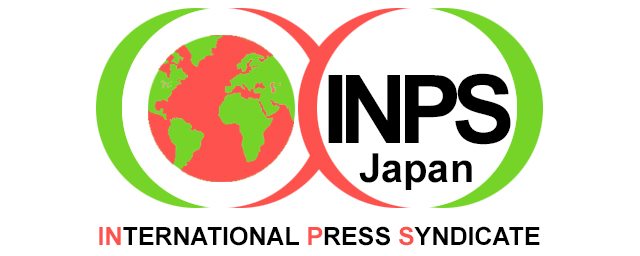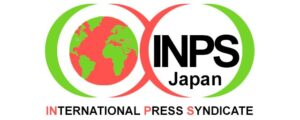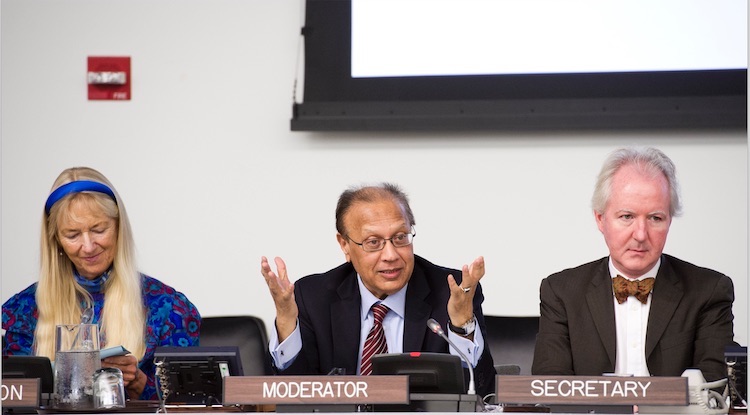By Ambassador Anwarul K. Chowdhury
Ambassador Anwarul K. Chowdhury is the Founder of the Global Movement for The Culture of Peace (GMCoP), Permanent Representative of Bangladesh to the UN (1996-2001) and Under-Secretary-General and High Representative of the United Nations (2002-2007).
The following is based on his inaugural keynote speech at the first “Exceptional Women of Peace” Awards Ceremony hosted by the Pathways To Peace (PTP) on 13 September 2022 (virtual)
NEW YORK (IDN) — Happy 23rd anniversary of the consensus action by the General Assembly of the United Nations of its foundational documents on the culture of peace!
23 years ago, on 13 September 1999, the United Nations adopted the Declaration and Programme of Action on a Culture of Peace, a monumental document that transcends boundaries, cultures, societies, and nations. It was an honor for me to Chair the nine-month long negotiations that led to the adoption of this historic norm-setting document by the United Nations General Assembly. That document asserts that inherent in the culture of peace is a set of values, modes of behaviour and ways of life.
A statement from the Fourth World Conference on Women, in Beijing in 1995 declared that “the dynamic movement towards a culture of peace derives inspiration and hope from women’s visions and actions”. It further underscored that full respect for the human rights of women; the release of women’s creative potential in all aspects of life; the equal participation of women in decision-making are all prerequisites to attaining the culture of peace.
The core message of this 1995 statement continues to be equally relevant today.
I am deeply moved by the honor bestowed on me to be the inaugural keynote speaker at the “Exceptional Women of Peace” Awards Ceremony today, that too on this very special day of 13 September.

Pathways To Peace, PTP, has been working for over 40 years locally and globally, inter-generationally and multi-culturally, to support peacebuilding and peacebuilders, and the initiatives to co-create the global culture of peace.
Executive Director of Pathways To Peace (PTP) Tezikiah (Tez) Gabriel asserted that “We see women, particularly young women using their voice and presence to create positive change and build lasting peace. Yet often these women are not known or recognized. Many are doing their work for peace in the most difficult circumstances. They are unsung “sheroes” nurturing peace in war-torn areas of our world, bringing hope and inspiring peace to those suffering in devasting poverty, hunger, and disease.”
She went on to emphasize that “The Exceptional Women of Peace Awards seek to honor those women – and ALL women. In the spirit of our beloved Avon Mattison, when we honor one, we honor all. All are needed to build the sustainable peace, to create the Culture of Peace in all our lives.”
Encouraged by the spirit of its Co-Founder, Avon Mattison, a dear and respected friend, PTP recognizes the exceptional leadership of women of all ages, backgrounds, and experiences. To commemorate the inspirational legacy of Avon, this year on 8 March, International Women’s Day, PTP launched an award campaign, to honor “Exceptional Women of Peace.” As PTP says “This award honors the inspiring work of women peacebuilders whose courage, leadership, and commitment to peace stand out as beacons of strength and hope.”
My life’s experience has taught me to value peace and equality as the essential components of our existence. They unleash the positive forces of good that are so needed for human progress. My initiatives at the United Nations General Assembly in 1999 on the Culture of Peace, in the Security Council in 2000 on equality of women’s participation and in leading the UN system’s prioritization of the needs of the world’s most vulnerable countries as their champion for six years – all show that when head and heart join together to do something meaningful and worthwhile for humanity, no obstacle is insurmountable.
My work has taken me to the farthest corners of the world. I have seen time and again the centrality of the culture of peace and women’s equality in our lives. This realization has now become more pertinent amid the ever-increasing militarism, militarization and weaponization that is destroying both our planet and our people.
One soul-stirring inspiration that I have experienced from my work for peace, development and human rights is that we should never forget that when women – half of world’s seven plus billion people – are marginalized, there is no chance for our world to get sustainable peace in the real sense. It is my strong belief that unless women are engaged in advancing the culture of peace at equal levels at all times with men, sustainable peace would continue to elude us.
Women bring a new breadth, quality, and balance of vision to a common effort of moving away from the cult of war towards the culture of peace. I believe wholeheartedly that women’s equality makes our planet safe and secure.
All of you are aware of UN Security Council resolution 1325 on women and peace and security. It is very close to my intellectual existence and my very small contribution to a better world for each one of us. To trace back, more than 22 years ago, on the International Women’s Day in 2000, as the President of the Security Council, I initiated an agreed statement that formally brought to global attention the positive role and contribution of women.
The Security Council recognized in that statement that peace is inextricably linked with equality between women and men and affirmed the value of full and equal participation of women at all decision-making levels. That conceptual and political breakthrough finally resulted in the adoption of the Resolution 1325.
Adoption of 1325 opened a much-awaited door of opportunity for women who have shown time and again that they bring a qualitative improvement in structuring peace and in post-conflict architecture. When women participate in peace negotiations and in the crafting of a peace agreement, they have the broader and long-term interest of society in mind.
We recall that in choosing the three women laureates for the 2011 Nobel Peace Prize, the citation referred to 1325 saying that “It underlined the need for women to become participants on an equal footing with men in peace processes and in peace work in general.”
UNSCR 1325 is the only UN resolution so specifically noted in any citation of the Nobel Prize.
Much, nevertheless, remains to be done.
Empowering women’s political leadership will have ripple effects on every level of society. When politically empowered, women bring important and different skills and perspectives to the policy making table in comparison to their male counterparts. I underscore often that when women join politics, they want to DO something, when men join politics, they want to BE something.
Patriarchy and misogyny are humanity’s dual scourges pulling back the humanity away from our aspiration for a better world to live in freedom, equality, and justice. Gender inequality is an established, proven, and undisputed reality – it is all pervasive. It is a real threat to human progress!
On a somber note, let me alert that we are experiencing around the globe an organized, determined rollback of the gains made as well as new attacks on women equality and empowerment – yes, in all parts of the world and in all countries without exception.
That global reality is dramatically evidenced in the fact that the UN itself despite being the biggest champion of women’s equality has failed to elect a woman secretary-general yet to reverse the historical injustice of having the post occupied by men for its entire seven-decades of its existence.
Before closing, let me assert that feminism is a component of a modern view on global politics. It is about smart policy which includes whole populations, uses all potential and leaves no one behind.
Let me reiterate that I am proud to be a feminist. All of us need to be. That is how we make our planet a better place to live for all.
Congratulations to the first recipients of the Exceptional Women of Peace Award in 2022.
We should always remember that without peace, development is impossible, and without development, peace is not achievable, but without women, neither peace nor development is conceivable. [IDN-InDepthNews – 23 September 2022]
Photo: Late Ms Avon Mattison (left) with Ambassador Anwarul Chowdhury at the inaugural High Level Forum on The Culture of Peace at the United Nations convened by the 66th President of the UN General Assembly on 14 September 2012.


